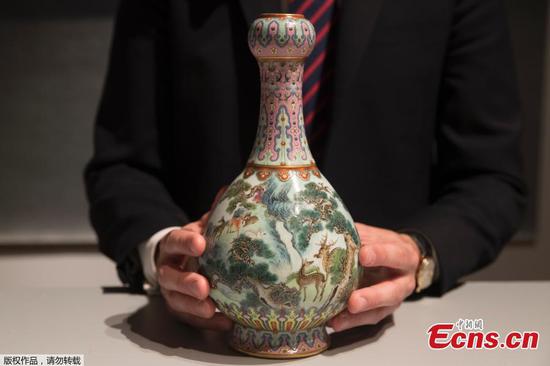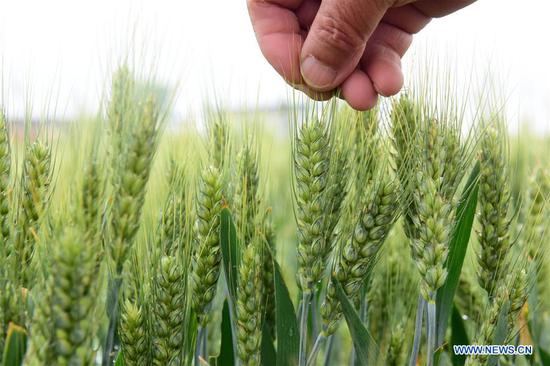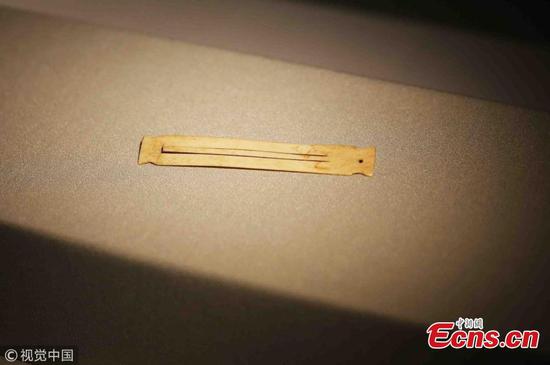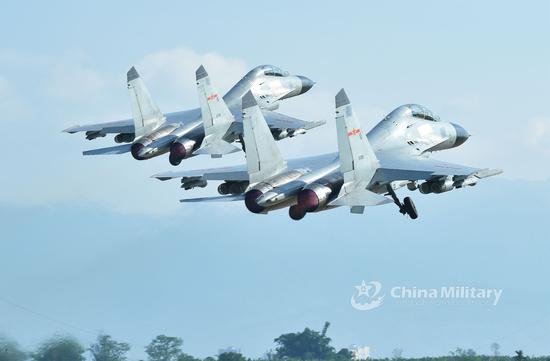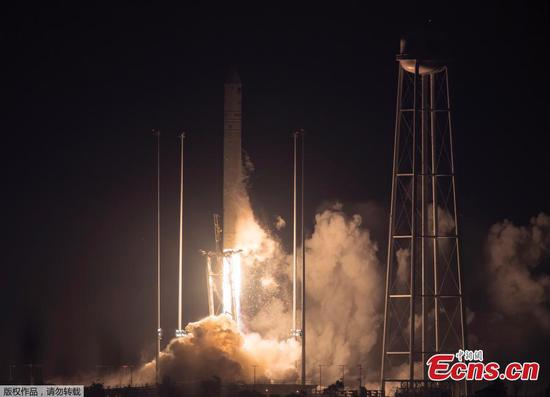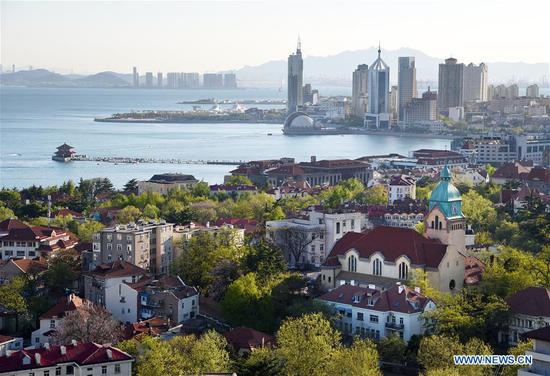
German numerical control machine manufacturer Grob showcases its products and technologies at an industrial exhibition in Shanghai in April. (Photo/China Daily)
China and Germany-both strong supporters of economic globalization and multilateralism-are poised for even stronger business ties in coming years, according to officials and business leaders.
For many Chinese companies and consumers, "Madein-Germany" has traditionally meant products such as automobiles, machinery and, of course, beer. But there is now a growing appetite in China for a variety of new German goods-from sensors, semiconductors and new materials to healthcare products sold in "dm-drogerie markt", Germany's largest retailer by revenue.
China has been Germany's top trading partner for two consecutive years after overtaking the United States and France in 2016.
The bilateral trade volume between China and Germany amounted to $168.09 billion in 2017, up 11.1 percent year-on-year, data from the General Administration of Customs shows.
"The future of Chinese-German business ties will be based on trade in high-end and consumption goods, and investment in the fields of infrastructure and service projects, manufacturing, pharmaceutical and multimodal logistics business," said Zhang Yunling, director of international studies at the Chinese Academy of Social Sciences in Beijing.
He said that even though both the Chinese and German economies have been affected by weak global demand, as well as the challenges of unilateralism and trade protectionism conducted by the US, the degree of interdependence between the two remains stable in bilateral cross-industry trade.
"China will continue to export consumer goods in exchange for Germany's high-tech products such as electronic and chemical products, construction machinery, vehicles and parts, medical equipment and pharmaceutical products," said Yu Jianlong, secretary-general of the China Chamber of International Commerce.
"Most of their imports are complementary. Therefore, it isn't direct competition," Yu said.
Chinese exports to Germany mainly consist of raw materials, computers, transport equipment, plastic and rubber products, textiles, garments and household appliances.
As many Chinese companies cast off their heavy dependence on service trade with the US and conduct more international collaboration in research and development with other countries including Germany, Russia and South Korea, Yu said it would be beneficial for China and Germany to deepen cooperation in the field of service trade.
With a focus on unmet medical needs in the country, Leverkusen-based Bayer AG has been continuously introducing innovative drugs into China to seize opportunities brought by the government's Healthy China 2030 initiative and the country's consumption upgrading boom.
Bayer's Stivarga became the first new drug for liver cancer treatment this year after Nexavar was approved in China 10 years ago, for helping to significantly extend the overall survival of Chinese patients with the disease.
"Relying on our long-term experience and deep insights accumulated in China, Bayer has been unceasingly exploring new products and services through innovations and collaborations to address unmet medical demands," said Wei Jiang, executive vice-president of commercial operations for Bayer Pharmaceuticals China and APAC region.
DHL Global Forwarding, a German provider of air, sea and road freight services, this month introduced biweekly scheduled flights between Incheon in South Korea, Wuxi in China's Jiangsu province and Frankfurt-Hahn in Germany to cater to a growing airfreight demand between North Asia and Europe, particularly in electronic products.
The company's move is considered a response to growing air trade and the booming cross-border e-commerce sector between Europe and eastern China.
"While Europe is the main export market for small and medium-sized e-commerce companies in Wuxi, the new service connecting Wuxi and Frankfurt-Hahn will alleviate the current shortage of airfreight services in Wuxi," said Steve Huang, chief executive officer of DHL Global Forwarding China.






























